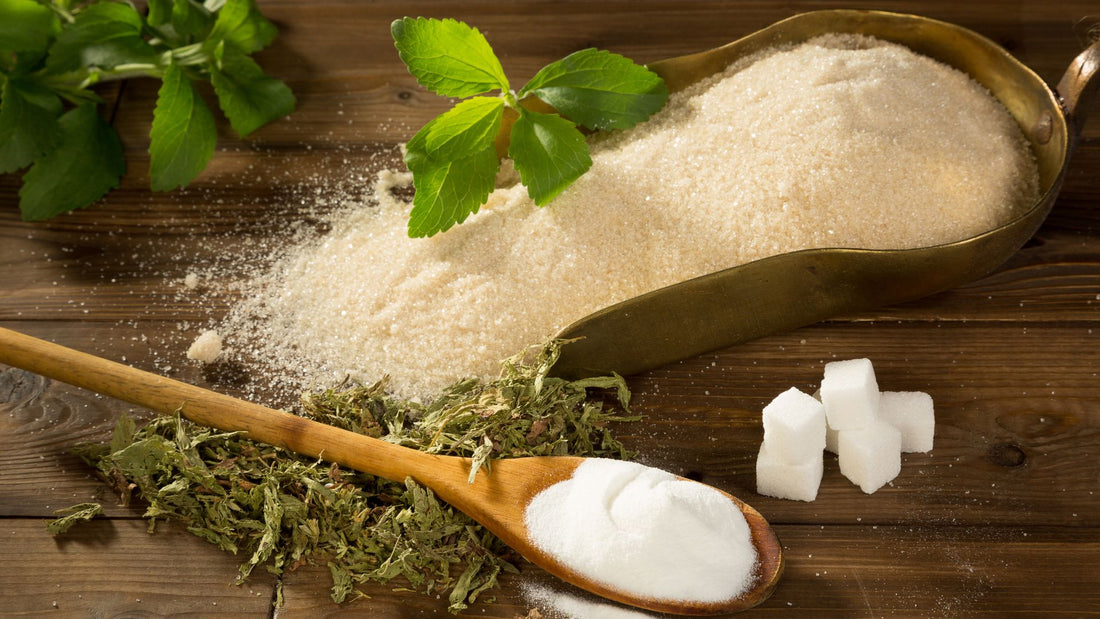In our quest for healthier lifestyles, one of the first areas many of us look to improve is our diet. Refined sugar, ubiquitous in modern diets, has been linked to a myriad of health issues including obesity, diabetes, and heart disease. As a result, people are increasingly turning to natural sweeteners as alternatives to refined sugar. In this blog, we'll explore some of these natural sweeteners, their benefits, and how they can be incorporated into your diet.
1. Honey: Nature's Golden Sweetener
Honey has been used as a sweetener for centuries, valued not only for its sweetness but also for its potential health benefits. Unlike refined sugar, honey contains antioxidants, vitamins, and minerals that can support overall health. It also has a lower glycemic index compared to sugar, meaning it causes a slower and steadier rise in blood sugar levels. When substituting honey for sugar in recipes, keep in mind that it is sweeter than sugar, so you'll need less of it.
2. Maple Syrup: A Taste of Nature
Maple syrup, derived from the sap of maple trees, is another natural sweetener gaining popularity. Rich in antioxidants and minerals such as manganese and zinc, maple syrup offers a more nutrient-dense alternative to refined sugar. It also adds a unique flavor profile to dishes and can be used in baking, cooking, and as a topping for pancakes, waffles, and oatmeal.
3. Stevia: Zero-Calorie Sweetness
Stevia is a natural sweetener extracted from the leaves of the Stevia rebaudiana plant. It is known for its intense sweetness and zero-calorie content, making it an attractive option for those looking to reduce their calorie intake. Stevia does not affect blood sugar levels and has been studied for its potential health benefits, including its role in managing diabetes and promoting weight loss. It is available in powdered and liquid forms and can be used in beverages, desserts, and cooking.
4. Coconut Sugar: A Sweet Surprise
Coconut sugar, made from the sap of coconut palm trees, is another natural alternative to refined sugar. It contains minerals like iron, zinc, and calcium, as well as antioxidants and inulin, a type of fiber that may support gut health. Coconut sugar has a lower glycemic index compared to sugar, meaning it has a less pronounced effect on blood sugar levels. It has a rich caramel-like flavor and can be used in baking, cooking, and as a sweetener for beverages.
5. References:
Rizkalla SW, Luo J, Kabir M, et al. "Chronic consumption of fresh but not heated honey improves metabolic parameters in healthy subjects." Journal of medicine food. 2003;6(4):313-22.
Bondonno NP, Bondonno CP, Blekkenhorst LC, et al. "Flavonoid-rich apple improves endothelial function in individuals at risk for cardiovascular disease: a randomized controlled clinical trial." Molecular Nutrition & Food Research. 2018;62(3):1700674.
Goyal SK, Samsher, Goyal RK. "Stevia (Stevia rebaudiana) a bio-sweetener: a review." International journal of food sciences and nutrition. 2010;61(1):1-10.
Chong MF, Macdonald R, Lovegrove JA. "Fruit polyphenols and CVD risk: a review of human intervention studies." British Journal of Nutrition. 2010;104(S3):S28-39.
Incorporating natural sweeteners into your diet can be a simple yet effective way to reduce your intake of refined sugar while adding depth of flavor and potential health benefits to your meals and snacks. Whether you choose honey, maple syrup, stevia, or coconut sugar, experimenting with these natural alternatives can help you embark on a journey towards healthier eating habits.

